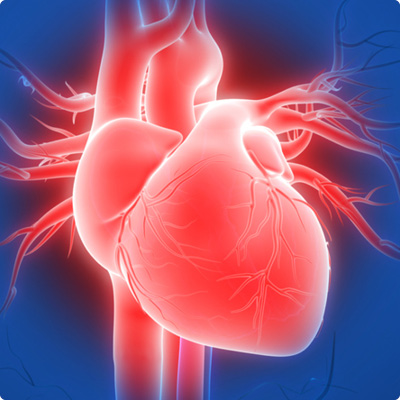
The COVID-19 pandemic has only added to the challenge of staying on top of heart health. Life as we know it has changed in many ways. Spending more time indoors, working from home, snacking more, and exercising less has led to weight gain for many of us. One of the most alarming trends has been the delay in seeking routine and preventive health care. These factors have negatively impacted heart health and are putting individuals at risk of developing heart disease.
Though we are living through difficult times, putting off health screenings and continued care is not the answer. “When it comes to heart health, there should be no hesitation,” said Jennifer Wellings, MD, a cardiologist at Englewood Health. “It is important to not only take personal action, but also consult with a doctor on additional steps that can be taken to maintain a healthy heart.”
According to the CDC, in the United States there are an estimated 30.3 million adults diagnosed with cardiovascular disease—including coronary heart disease, cerebrovascular disease, and rheumatic heart disease, among other conditions. It is the leading cause of death globally. Of these cardiovascular-disease-related deaths, four out of five are a result of heart attack and stroke.
Coronary artery disease (CAD)—sometimes called coronary heart disease—is the most common type of heart disease in the United States. It is caused by plaque buildup in the walls of the arteries that supply blood to the heart. When this happens, the arteries narrow, which can lead to chest pain and discomfort. Other symptoms of CAD include weakness, light-headedness, nausea, shortness of breath, and pain or discomfort in the arms or shoulders. Sleep apnea, high triglycerides, autoimmune diseases, and alcohol consumption can be contributing factors to developing CAD.
Preventing coronary artery disease, providing early intervention for arrhythmia management, and offering the latest technology for treating structural heart disease and aortic disease are some of the key focuses of the team at Englewood Health. They achieve this by using electrocardiograms, echocardiograms, cardiac CT scans, exercise stress tests, nuclear stress tests, and several other tools for early intervention and diagnosis.
“The goal is to work with our patients early on to ensure that any modifiable heart disease risks do not escalate,” said Dr. Wellings. “If conditions have already developed, patients can count on us to provide them with safe, advanced care.” When evaluating patients and tailoring their care plans, the cardiology team uses innovative diagnostic and treatment options, including the Watchman™ and MitraClip® devices, and offers the latest in surgical and nonsurgical techniques, including minimally invasive procedures such as transcatheter aortic valve replacement (TAVR). The team of specialists treat thousands of patients with heart conditions from across New Jersey each year. Englewood Health provides ongoing care to help reduce the risk of developing cardiac disease and help patients achieve their heart health goals.
Posted on February 9, 2021

